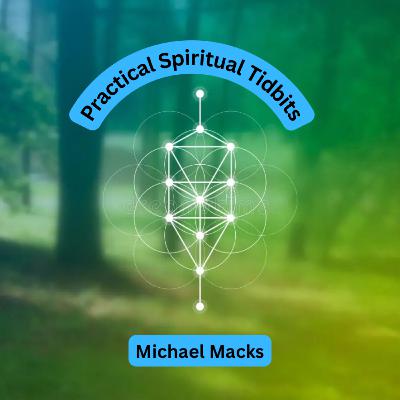Discover Practical Spiritual Tidbits
Practical Spiritual Tidbits

42 Episodes
Reverse
This episode is about the relationship between feeling overwhelmed and decision making. We discuss the importance of refraining from analyzing or making decisions from a place of overwhelm from a neuroscience, relationship, emotional, and spiritual perspective.
In this episode, we discuss the paradox between free-will and Divine intervention. How much control do we have over our lives. Understanding this balance can bring profound peace.
In this episode, we share a spiritual perspective on the feeling of embarassment. Why is it the first emotion mentioned in the Bible? What exactly causes it? Are there any benefits? What purpose does it serve?
In this episode, I sit down with Rabbi Mordechai Yosef, who is the author of 3 books and a television personality. We discuss his childhood amongst celebrities in California, his process of conversion to Judaism, being Jewish, living in Jerusalem, visiting the Temple Mount, prophecy, and connecting to Divine Light, amongst other topics. I hope you find it as inspiring as I did. You can follow him on instagram @mordechai_yosef_ben_avraham
In this episode, Yehuda, founder of Make Your Mark clothing brand, shares a personal story of his connection with the holy mystic known as the Yenuka. You can follow him on instagram @makeyourmarkculture
In this conversation with Yoel Saidian, we discuss Birthright, interfaith dialogue, belief in a loving God, a Kabbalistic perspective on the concepts of "sin" and "punishment," the proper spiritual lenses through which to view other human beings, and transforming judgement to curiosity, amongst other topics. His instagram is @yoelsaidian
In this conversation with my friend Zev Lowy, we discuss several topics, including mystics vs. rationalists, Divine intervention, coincidences, seeking novelty and finding beauty, amongst others. You can follow him on X @zevlowy and on Substack
In this episode we discuss the concept that the Creator speaks to us through our hearts. Giving examples of Jacob, King David and soldiers (and Bob Dylan).
In this episode, we contrast the marriages of Isaac and Jacob. Why did Jacob love his wife before he married her, while Isaac didn't? And why did Jacob get married much later in life than Isaac?
There are only 3 logical ways to confront negativity and challenges. In this episode we explain the 3 ways and connect them to how 3 historic legendary lovers of people dealt with negativity in others that they encountered.
In this episode we look at fears and worries from a deeper spiritual perspective, and based on that emerges a practical method to calm worries.
Yonatan Nahum is a healer, who incorporates spirituality in healing the body. To get in touch with him, check out his instagram page @yonatannahum
In this episode, we discuss Kabalistic teachings about happiness. Is happiness is a goal or a means? If it's a means, then to what end? Why did the Kabalists consider being happy to be something spiritual?
The Talmud teaches that at the end of our lives we are all asked 6 questions. In this episode we explore those questions, and suggest that they parallel the top 5 regrets of the dying.
This episode is all about strengthening hope. We bring various sources that can inspire hope and optimism.
In this episode, Batsheva and I sit and discuss topics of spirituality, intuition, faith, trust, Source, and surrender. Batsheva is a lawyer, writer, and artist. If you'd like to see more of her content, check out her new art instagram page @cloudsofthesoul_
The Kabbalists teach that ironically, clothing simultaneously covers (our body) and reveals (our soul.) In this episode, we explore the 3 functions of clothing from a spiritual perspective.
About 2,400 years ago, a group of prophets and sages wrote a prayer called the "Amidah," which contains secrets for how to most effectively pray/manifest. In this episode we share 3 of them.
In this episode we explore the question of: why do we feel drawn to certain locations on earth? What can impact the energy of physical places? Why do some places feel more like home?
The way that we anticipate our future deeply impacts how we feel in the present. In this episode, we give visual analogies to explain the difference between fear and faith, and how faith can counteract fear.





